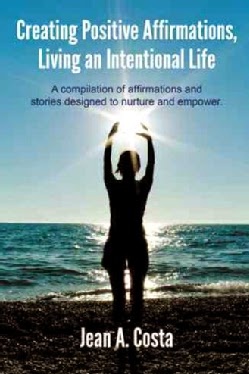Affirmations: I am
courageous.
"I learned that courage is not the absence of fear,
but the triumph over it. The brave man
is not the one who does not feel afraid, but he who conquers that fear."
Nelson Mandela
It seems lately the topic of conversation has often turned to the
concept of courage. Partly because my
Women of Faith study group is reading The Ten Prayers God Always Says Yes To
by Anthony DeStephano. One of the prayers is, "God grant me
courage." I loved the chapter of
this topic. I thought his presentation
was clear and comprehensive and for me, just what I needed to "hear"
at this time.
I know I have at least two positive affirmations that have
bolstered my confidence over the years.
They are, I am a bold adventuress and I am audacious. I say, "yes I can." They have worked quite well for
me. Many times I've jumped into
situations, well OK maybe I simply walked into them, which I was not sure
about. I'd usually come out the other
side excited about what had taken place and exhilarated that I'd overcome my
fear and anxiety. It was always a very
empowering experience.
While those affirmations have been good, most of my days are
fairly uneventful or at least not adventurous and yet I can carry with me a
sense of concern; concern about my finances, my health or that of my loved
ones, my relationships and especially about the future.
Part of Anthony's premise was that we need to practice being
courageous. We need to pick up the
quality, the gift every day. At first we
should start with small things and as our strength grows and our courage muscle
becomes stronger, we will be able to be courageous at more challenging
times. They are a coming! Or, perhaps they are already here. The words were for me, filling a need. His advice was exactly what I seemed to need
at this particular time in my life.
I believe I am still grieving the death of my mother and her
blessed but very difficult last several years of her life. I know I will heal but for now the memory
lingers and weighs on me and leaves me wondering about my future, my old age
and my death.
Think about the brave people you know? Think about the brave people you have read
about? The first group that always comes
to my mind are our service people. I
know for some they discovered courage in situations they never imagined they
could endure. Our veterans are some of
our most remarkable heroes. Then, our
fire fighters come to mind. My dad,
Frank Grolimund, was a captain with the New York City volunteer fire
fighters. I vividly remember being with
him as he ran into a burning building to help with whatever was necessary. I believe he was very brave, if not a little
crazy. I think too of all the fire
fighters who ran towards the dangers of the World Trade Center on 911. The
memory still brings tears to my eyes. Then, there are all those people fighting
cancer or some other life threatening illness.
I am here to tell you it takes an enormous amount of courage to continue
that fight and sometimes even more, to allow yourself or a loved one, to let
go.
The greatest example of courage for me, however, is that of Jesus
Christ. When I mediate on his time in
the Garden of Gethsemane (Matthew 26:36-46) I cannot imagine the courage it
must have taken for him to give himself completely over to His Father and get
up and walk out to what he knew, he knew in every excruciating detail what he
was to experience! He must have asked
His Father for courage that evening and it was obviously granted.
Now, I have learned that God will also grant me courage if I only
ask. It will be one more answered prayer
and I don't have to wait, I can claim it now.
I can claim it daily in all things, small and with practice, large. "God grant me courage." I am asking and I believe in answered prayer
and with that comes a new affirmation, I am courageous.
How about you? Want to overcome fear and become brave? Want more courage? Join me.
Ask!














